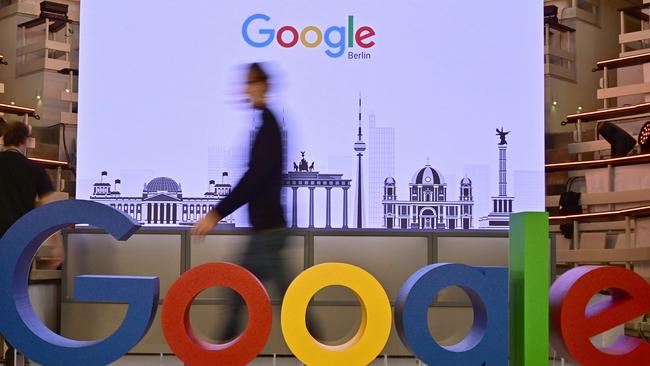
The media code of conduct is completed and is due to be released this week.
The Australian Competiton and Consumer Commission also has an action against Google alleging it misled consumers about the use of their location data.
The latest action centres on the multi-billion ad tech market, through which Google dominates the digital advertising space through its control of personal information.
The DoubleClick legal action is the ACCC’s first venture into adtech and the promises made by Google, which have been described as deception by design.
When Google first acquired DoubleClick for $US3.1 billion in 2007 it did so with contracts in place so it would know who taps into what website and when.
At the time there were contracts in place to ensure the website data would be kept separate but in time those contracts expired and Google combined the data into its own network, including its search powers.
This means if you look for sporting wear, Google knows it, And if you buy online Google knows it, and that makes its advertising more valuable for sporting wear retailers.
That is what happens when a company with market power buys one without that power.
The same is happening now with the ACCC and others looking at Google’s $US2.1 billion acquisition of wearable device company Fitbit.
That will give Google access to your personal health data.
The EC is now negotiating with Google over the terms of that deal and Google is making all sorts of promises about what it will and won’t do.
In the wake of the DoubleClick experience Google’s promises will be treated with some scepticism.
Through DoubleClick Google knows every web site you log onto including the ACCC’s own site.
The key issue in the latest case is that through its data control Google increases the value of its advertising business, illustrating how Google uses data to boost its own bottom line.
The ACCC is in the midst of a long running adtech inquiry, with a draft report due in December.
The latest legal action adds one more bit of pressure on Google.
So as the government looks at how to make Google pay fair compensation for media content, the timing could not be better.








Consumer watchdog chief Rod Sims will say it‘s a coincidence but Monday’s announcement of legal action against Google is superbly timed for the coming talks over his proposed code of conduct detailing how Google and Facebook will pay for media content.